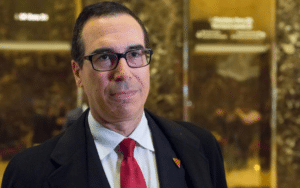Harbour Energy, a prominent U.K. oil and gas company, has recently revealed its plans to purchase the majority of Wintershall Dea’s upstream assets. This deal, valued at $11.2 billion in cash and shares, involves BASF and LetterOne, the shareholders of Wintershall Dea.
Expanding Presence Across Multiple Countries
The agreement encompasses all of Wintershall Dea’s upstream assets in several countries, including Norway, Germany, Denmark, Argentina, Mexico, Egypt, Libya, and Algeria. Additionally, it includes the company’s licenses for carbon-dioxide capture and storage throughout Europe.
However, it’s important to note that this acquisition does not include Wintershall Dea’s assets located in Russia or any joint ventures it has with Russian companies. Furthermore, the deal does not cover Wintershall Dea’s stake in WIGA Transport Beteiligungs.
Transformation into a Global Powerhouse
With this strategic acquisition, Harbour Energy aims to establish itself as one of the world’s largest and most geographically diverse independent oil and gas companies. As a result, the company expects significant growth in free cash flow and endeavors to deliver enhanced and sustainable shareholder returns.
Harbour Energy’s Chief Executive, Linda Cook, expressed her enthusiasm about this milestone, stating, “Today’s announcement marks Harbour’s fourth major acquisition and the most transformational step yet in our journey to build a uniquely positioned, large-scale, geographically diverse independent oil and gas company.”
BASF to Acquire Majority Stake in Harbour Energy: What You Need to Know
German chemicals giant BASF is set to acquire a majority stake in Harbour Energy, giving it a strong foothold in the industry. Upon completion of the acquisition, BASF will own 46.5% of Harbour’s shares, strengthening its position in the market.
New Board Members at Harbour
As part of the deal, BASF will also have the opportunity to nominate two nonexecutive directors to Harbour’s board. This privilege will be available as long as BASF holds at least 25% of the company’s shares. If BASF’s ownership drops to between 25% and 10%, it will still be able to nominate one director.
A Growing Trend in the Industry
This acquisition is occurring amidst a wave of deal-making in the sector. Just last month, Exxon Mobil purchased Pioneer Natural Resources for nearly $60 billion, while Chevron acquired Hess in a $53 billion takeover. Occidental Petroleum also joined the trend with its own $10.8 billion deal for CrownRock.
Maximizing Returns in an Evolving Market
The recent record profits in the oil industry have paved the way for this merger wave. With oil prices experiencing some downward movement this year after significant increases in 2022, companies are looking for ways to maximize returns on their assets. Mergers and acquisitions present an attractive opportunity to achieve this goal.
Market Performance
At present, Harbour Energy shares are performing well, with a 13% increase to 274.90 pence as of 1432 GMT. However, they remain down 9.9% year-to-date. On the other hand, BASF shares are up 1% at EUR48.96 and have gained 4.9% over the course of this year.
There is no doubt that this acquisition by BASF will have a significant impact on the industry. As the chemical giant takes a majority stake in Harbour Energy, the market will be watching closely to see how this move shapes the future landscape.
Contact Ian Walker for more information.


